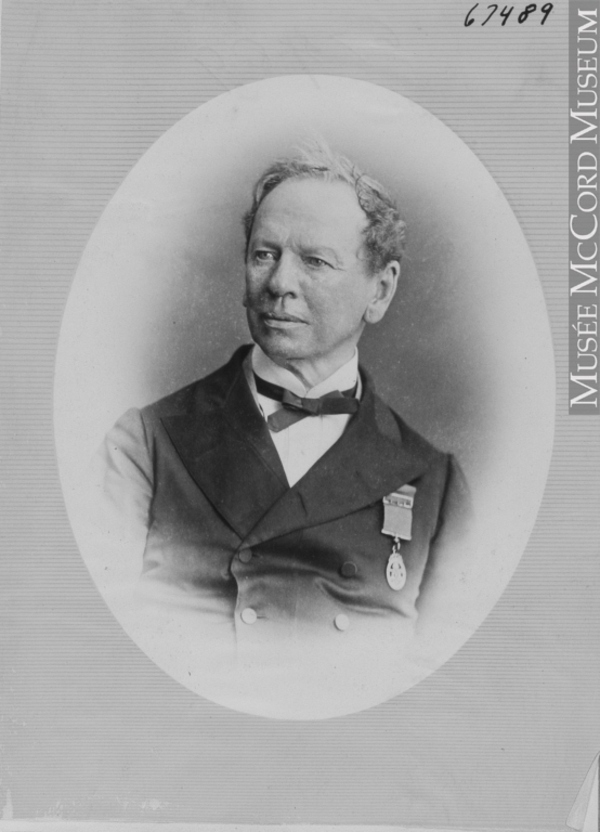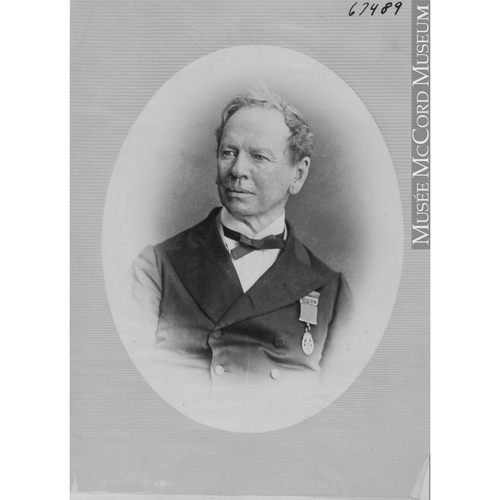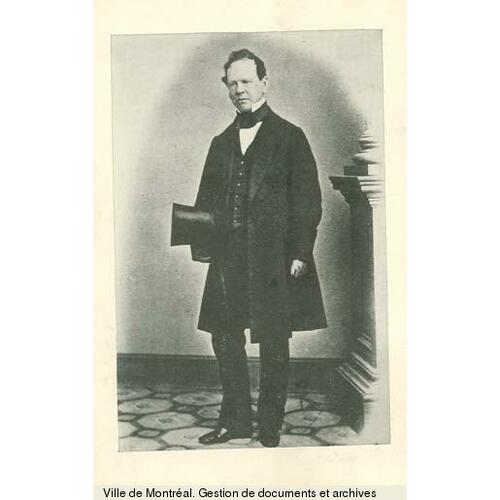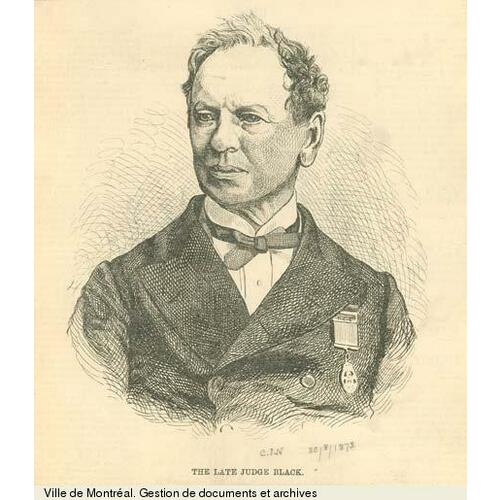
Source: Link
BLACK, HENRY, judge of the Vice-Admiralty Court, mha; b. 18 Dec. 1798 at Quebec, of the marriage of James and Margaret Black; d. 16 Aug. 1873 at Cacouna, Que.
After studying at the school of Dr Daniel Wilkie* at Quebec, Henry Black became a law student, and was called to the bar on 20 March 1820. He practised his profession at Quebec in partnership with Andrew Stuart*. On 28 Sept. 1836 he was appointed judge of the Vice-Admiralty Court to replace Judge James Kerr*, who had been dismissed as a result of accusations levelled against him by the House of Assembly. Black was president of this tribunal for 37 years, and he acquired a fine reputation for impartiality, honesty, and exquisite kindness. On 18 April 1840 he had been appointed to the Special Council, while retaining his post as a judge, and he was confirmed in his duties at the Vice-Admiralty Court on 10 Feb. 1841.
On 29 March of the same year, Henry Black was elected member of the assembly for the city of Quebec, thanks to the substantial support given by public servants. On the occasion of the famous motion made by John Neilson* on 23 June 1841 condemning the Union, and throughout the whole of the first Union parliament, he consistently voted with the Tories. He supported the constitutional option proposed by governor Charles Theophilus Metcalfe* on 2 Dec. 1843, when a vote was taken following the resignation of the executive councillors who were supporters of ministerial responsibility [see Draper].
Even though he had the support of the newspaper Le Canadien, Black decided not to resubmit his name as a candidate in the general elections of 1844. Furthermore, during the 30 years or so that followed he seems to have limited his activity almost exclusively to his tribunal. Learned in maritime law, he enjoyed undisputed authority. He was named a cb, and Harvard University conferred on him an honorary degree of doctor of laws. After his death, which occurred with an attack of erysipelas at Cacouna, where he had gone to take the baths, L’Événement of Quebec paid him this tribute: “He was a man of profound learning, and on no subject was his erudition found wanting. The oldest lawyers consulted him, and his advice was law. He showed great kindness and interest in his dealings with young people who had recourse to his superior knowledge.”
Le Canadien (Québec), 18 août 1873. L’Événement (Québec), 16 août 1873. La Minerve (Montréal), 20 août 1873. P.-G. Roy, Fils de Québec, III, 96–97; Les juges de la province de Québec, 57. Cornell, Alignment of political groups. Monet, Last cannon shot. I. M. Abella, “The “Sydenham Election” of 1841,” CHR, XLVII (1966), 326–43. F.-J. Audet, “Membres du Conseil spécial,” BRH, VII (1901), 82–83.
Cite This Article
Jacques Monet, “BLACK, HENRY,” in Dictionary of Canadian Biography, vol. 10, University of Toronto/Université Laval, 2003–, accessed January 1, 2026, https://www.biographi.ca/en/bio/black_henry_10E.html.
The citation above shows the format for footnotes and endnotes according to the Chicago manual of style (16th edition). Information to be used in other citation formats:
| Permalink: | https://www.biographi.ca/en/bio/black_henry_10E.html |
| Author of Article: | Jacques Monet |
| Title of Article: | BLACK, HENRY |
| Publication Name: | Dictionary of Canadian Biography, vol. 10 |
| Publisher: | University of Toronto/Université Laval |
| Year of publication: | 1972 |
| Year of revision: | 1972 |
| Access Date: | January 1, 2026 |





